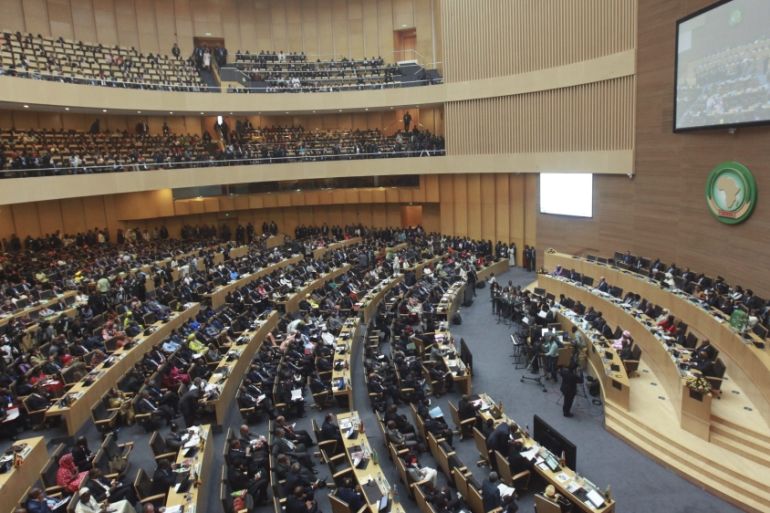African Union decides against peacekeepers for Burundi
Pan-African body will not send troops to crisis-hit country after government said any such force would be an invasion.

The African Union has decided against sending peacekeepers to crisis-hit Burundi after the embattled government said that any such move would be considered an invasion.
Smail Chergui, AU commissioner for peace and security, told a press conference in the Ethiopian capital on Sunday that a proposed deployment of 5,000 troops would be deferred until permission was granted by Bujumbura.
Keep reading
list of 4 itemsIt is time for a new Africa beyond borders and boundaries
Addis summit raises questions about AU’s muted stance on Ethiopia rifts
It is high time the AU takes a firm stance against Ethiopia’s aggressions
The decision came after a closed-door session at the AU where African leaders are meeting for a two-day summit.
African Union decides against peacekeepers for Burundi
Al Jazeera’s Catherine Soi, reporting from the African Union headquarters in Addis Ababa, said the decision was not a surprise considering Burundi’s opposition to the plan.
“It is going to be interesting to see how this delegation will be able to convince them to accept the troops,” she said.
Chergui said that an AU delegation would now fly to Burundi to hold talks aimed at ending the violence.
AU high level delegation to be sent to Burundi to discuss with gvt on dialogue and try to convince the president to say yes to MAPROBU.
— Catherine Wambua- Soi (@C_SOI) January 31, 2016
African Heads of State put on hold deployment of troops (MAPROBU) to Burundi until gvt consents. #26thAUSummit
— Catherine Wambua- Soi (@C_SOI) January 31, 2016
“Also i think there is no indication that the Burundian government will give its consent to the deployment of troops any time soon,” Wolters, who heads the conflict prevention and risk analysis program at the South African based think-tank said.
#AU remains gravely concerned about situation in #Burundi; strongly condemns all violence & #HumanRights violations: Comm. @AU_Chergui
— African Union Peace (@AU_PSD) January 31, 2016
The AU charter’s Article 4 (h) gives it the right to intervene in a fellow nation state “in respect of grave circumstances, namely: war crimes, genocide and crimes against humanity.”
Analysts say other African nations are wary of setting a precedent of deploying troops against the government’s wishes.
Solomon Dersso, a political analyst, told Al Jazeera that while Burundi has demonstrated some flexibility on the issue of dialogue, there has been “complete disagreement between Bujumbura and the AU when it has come to the deployment of [AU] troops”.

On Saturday as the AU summit opened, UN Secretary-General Ban Ki-moon, made clear that troops were needed to stem the violence.
The UN has warned that Burundi risks a repeat of a 1993-2006 civil war, with hundreds killed since April 2015 when President Pierre Nkurunziza announced that he would stand for a controversial third term in office.
At least 230,000 people have fled to neighbouring countries.
Since Nkurunziza’s re-election in July, clashes between government loyalists and the opposition have turned increasingly violent.